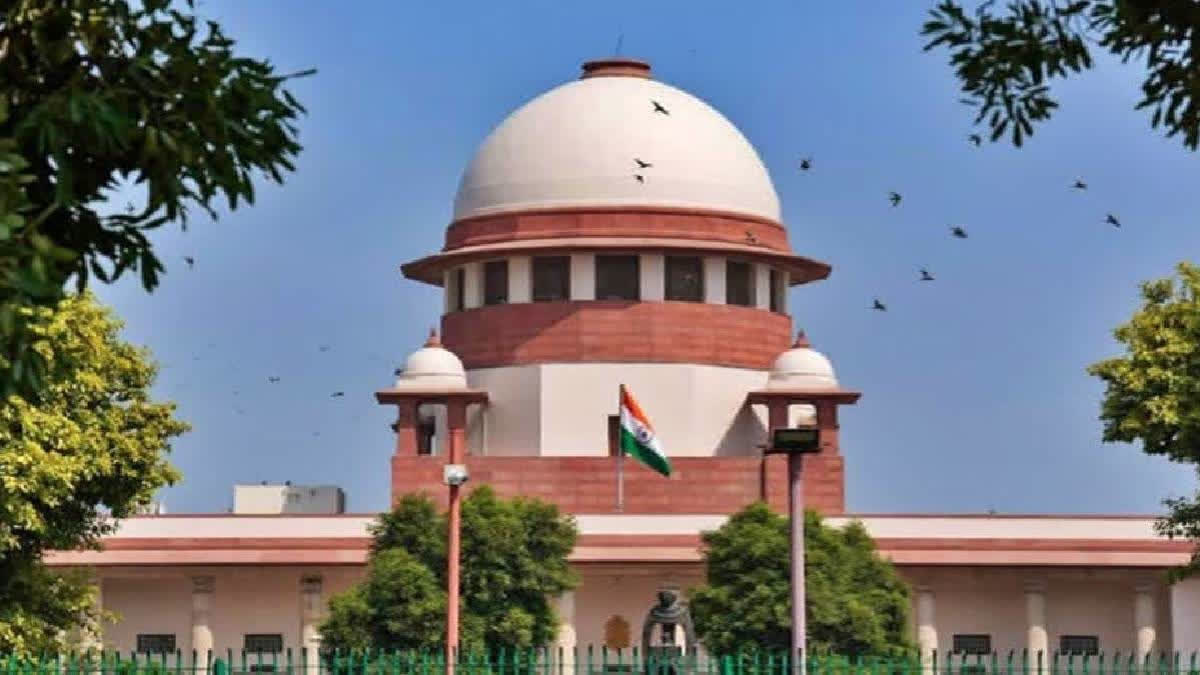New Delhi: The Supreme Court on Tuesday observed that what happened in Jammu and Kashmir was not one of its kind situation and even Punjab and some states in the northeast had seen difficult times.
The apex court made the remarks when the Solicitor General said the case of Jammu and Kashmir, which has seen violence for decades and has a history of cross-border terrorism, was ‘one of its kind’. The apex court made the observation as it shot a volley of questions at the Centre's counsel in connection with the source of the power of the Parliament to transform states into union territories, and stressed that the government cannot say that just because it is a border state, it has to be treated differently.
A five-judge constitution bench headed by Chief Justice of India D Y Chandrachud and comprising justices S K Kaul, Sanjiv Khanna, B R Gavai, and Surya Kant, is hearing a batch of pleas challenging the abrogation of Article 370, which bestowed special status on the erstwhile state of Jammu and Kashmir.
Solicitor General Tushar Mehta, representing the Centre, said Jammu and Kashmir is a "one-of-a-kind" case and if Gujarat or Madhya Pradesh were to be bifurcated, the parameters would be different but J&K has its strategic importance, it is a border state, terrorism, history of infiltration, history of outside influence.
Mehta stressed these were important aspects which were considered by the Centre, and added that India shares borders with at least four countries, which may not be friendly, "to put it mildly". Mehta cited a reduction in the number of stone pelting incidents and also fewer deaths of civilians and security forces after the abrogation of Article 370. At this juncture, Justice Kaul said there are many states with borders with other countries.
Mehta said whenever a state is reorganized, a blueprint is prepared by the Centre regarding the future of the state after reorganization, which includes how to bring youth into the mainstream and float various schemes.
The Chief Justice queried Mehta that once you concede that power to the Union in relation to every Indian state, how do you ensure that this kind of abuse they apprehended, this power will not be misused? Justice Kaul said, "Regarding J&K, this is not one of its kind situation and Punjab has seen very difficult times and similarly, some states in the northeast."
Justice Kaul further asked Mehta, "Tomorrow, if there is a scenario that all these states face a similar problem...." He asked Mehta, “How do you distinguish J&K from any other border state?” The bench observed that Parliament under Article 3 could carve out a UT from a state but could it convert an entire state into a UT or portion out a part of the state as a UT, Ladakh, and declare the pre-carved part — Jammu and Kashmir — as another UT?
Mehta said that J&K is a border state where a part of its territory has been occupied by Pakistan and the government is trying to sort out the problem which this country has faced for very long. “Democracy has seeped into the grassroots in Jammu and Kashmir... The government has a blueprint working,” said Mehta.
“One of the northeastern states is facing violence right now,” the bench queried Mehta, referring to Manipur. Justice Kaul said, “We cannot choose our neighbours. What the Chief Justice apprehends is would you go ahead and reorganise any of these states when you see trouble?” The bench noted that the government cannot say that just because it is a border state, it has to be treated differently. The Chief Justice pointed out that Himachal Pradesh and Uttarakhand were also border States.
The bench queried Mehta: Does the Parliament have the power to convert an existing state into a UT and what is the nature of exercise of that power? Is it temporary or permanent? The Chief Justice asked Mehta, when are you going to have elections (in J&K) and the UT here is not intended to be a permanent territory?
In the afternoon session, Mehta did not give a specific timeline, as sought by the court, for the restoration of Jammu and Kashmir to Statehood. Mehta read out the government’s assurance in Parliament on the day of the abrogation of Article 370 that Jammu and Kashmir was the "diamond on the head of the nation". Mehta said it would be restored back to being a state "once things get back to normal". The hearing in the matter will continue on Thursday.



